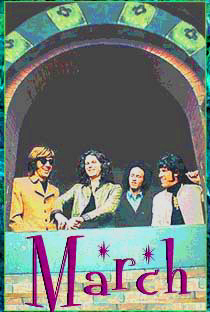|
THE FOLLOWING EVENTS TOOK PLACE ON MARCH 12
1474 - (Date Approximate) Sir Thomas Malory, the writer who brought the Arthurian legends together in Morte D’Arthur in the 15th century, dies.
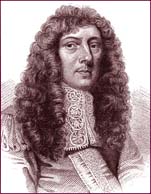
1626 - English biographer John Aubrey is born. He's best known for his Brief Lives, sketches he made to help a friend of his who was writing official biographies. He wrote about eminent Englishmen from Thomas Hobbes to William Shakespeare. His portraits include details about what his subjects liked to eat for breakfast, the texture of their skin, and their preference in hats. Aubrey was the first person to propose that Stonehenge was a temple built by the Druids.
1846 - Elizabeth Barrett writes to Robert Browning: 'If it will satisfy you that I should know you, love you, love you - when then indeed ... You should have my soul to stand on if it could make you stand higher.'
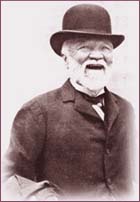
1901 - Steel magnate Andrew Carnegie gives New York City 5.2 million dollars to construct 65 branch libraries. He had just sold his Carnegie steel company for 250 million dollars and decided to retire to devote himself to charity work, and later gave money to create more than 1700 libraries all over the United States and in Britain., as well as numerous other philanthropic projects for education and the arts.
1910 - Founding chairman of the National Council on the Arts, The Kennedy Center, Producer Roger Stevens s born. Among his production credits are: West Side Story, Bus Stop, A Man for All Seasons, and Tea and Sympathy.
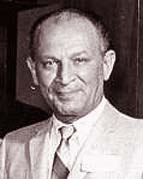
1917 - Leonard Chess is born in Motol, Poland. His Chicago-based Chess label defines the term "legendary."
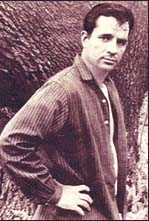
1922 - Jack (Jean Louis) Kerouac, American beat writer is born in Lowell, Mass. Kerouac published his first novel in 1950, titled The Town and the City. He was strongly influenced in his writing by others of the Beat generation, his friends, Burroughs and Ginsberg. His best-known work, On the Road (1957) was inspired by a cross-country trip taken while under the influence of drugs and drink, as Kerouac was purported to be for most of his life. His novel The Dharma Bums (1958), which describes a mountain climbing trip he and poet Gary Snyder took in Yosemite, contributed to popularising Zen Buddhism as a philosophy for bohemian artists in the U.S. In all, Kerouac published over 20 books. He died of an abdominal hemorrhage while living in St. Petersburg, Florida with his mother and his third wife, Stella Sampas. Truman Capote wrote of Kerouac's work, "That's not writing - that's typing."
1923 - Dr. Lee DeForest demonstrates his method of adding sound to motion picture film. One of the pioneers of radio in the early 1900s, DeForest came up with a snappy name for his invention; he called it: phonofilm. Today, we call it a soundtrack
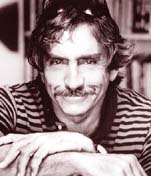
1928 - Pulitzer Prize-winning playwright Edward Albee is born. His works include A Delicate Balance [1967], Seascape [1974], and Who’s Afraid of Virginia Woolf?
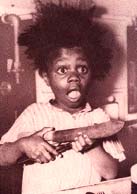
1931 - William "Buckwheat" Thomas, child actor in the Little Rascals short subjects, is born.
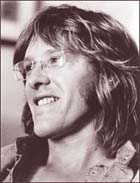
1942 - Jefferson Airplane guitarist Paul Kantner is born in San Francisco.
1946 - A daughter, Liza is born to Director Vincente Minnelli and Judy Garland. Liza will win the 1972 Academy Award for Best Actress for her role in Cabaret.
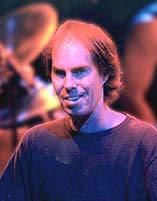
1949 - Bill Payne of the cajun-flavored rock band Little Feat is born.

1955 - Jazz saxophonist Charlie "Bird" Parker dies in New York City of heart failure. He more-or-less invented the be-bop form of music and just the week before played at the New York City jazz club Birdland, which was named after him. Charlie Parker was 34 years old. The postmortem on the hard-living musician suggests he may have died from pneumonia, a heart attack, burst stomach ulcers, or cirrhosis of the liver.
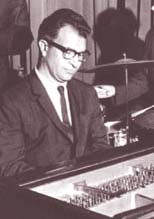
1955 - One of the great groups of jazz appears for the first time at New York City’s Carnegie Hall. The Dave Brubeck Quartet presents a magnificent concert for jazz fans. Joining Brubeck, in what would become one of the most popular concert draws on college campuses, were names that would become legends in their own right, including Paul Desmond on alto sax, Joe Morello on drums and Eugene Wright on bass.
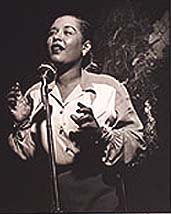
1958 - Jazz singer Billie Holiday, who had pled guilty to a narcotics possession charge in 1956, is given a year's probation by a Philadelphia court.
1964 - Malcolm X resigns from the Nation of Islam.
1968, Minnesota Senator Eugene McCarthy wins the majority of the delegates in the New Hampshire primary. This was reportedly a major factor in persuading incumbent President Lyndon Johnson not to seek re-election.
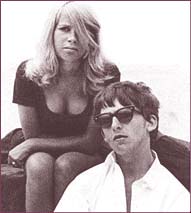
1969 - George Harrison and his wife Patti are arrested in the town of Esher in Surrey, south of London, on charges of cannabis resin possession after authorities find 120 joints in their house.
1969 - Paul McCartney weds American photographer Linda Eastman in London. Paul's brother Mike McGear is the best man, no other Beatle is in attendence.
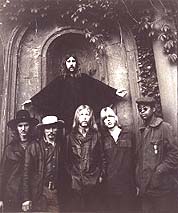
1971 - The Allman Brothers Band play one of the concerts which makes up the legendary live record At the Fillmore East.
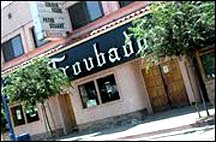
1974 - John Lennon is involved in an altercation with a photographer outside the Troubador club in Los Angeles. Lennon and Harry Nilsson had been heckling comedian Tommy Smothers and were ejected from the club.
For more day-by-day history go to HistoryUnlimited.net
|
